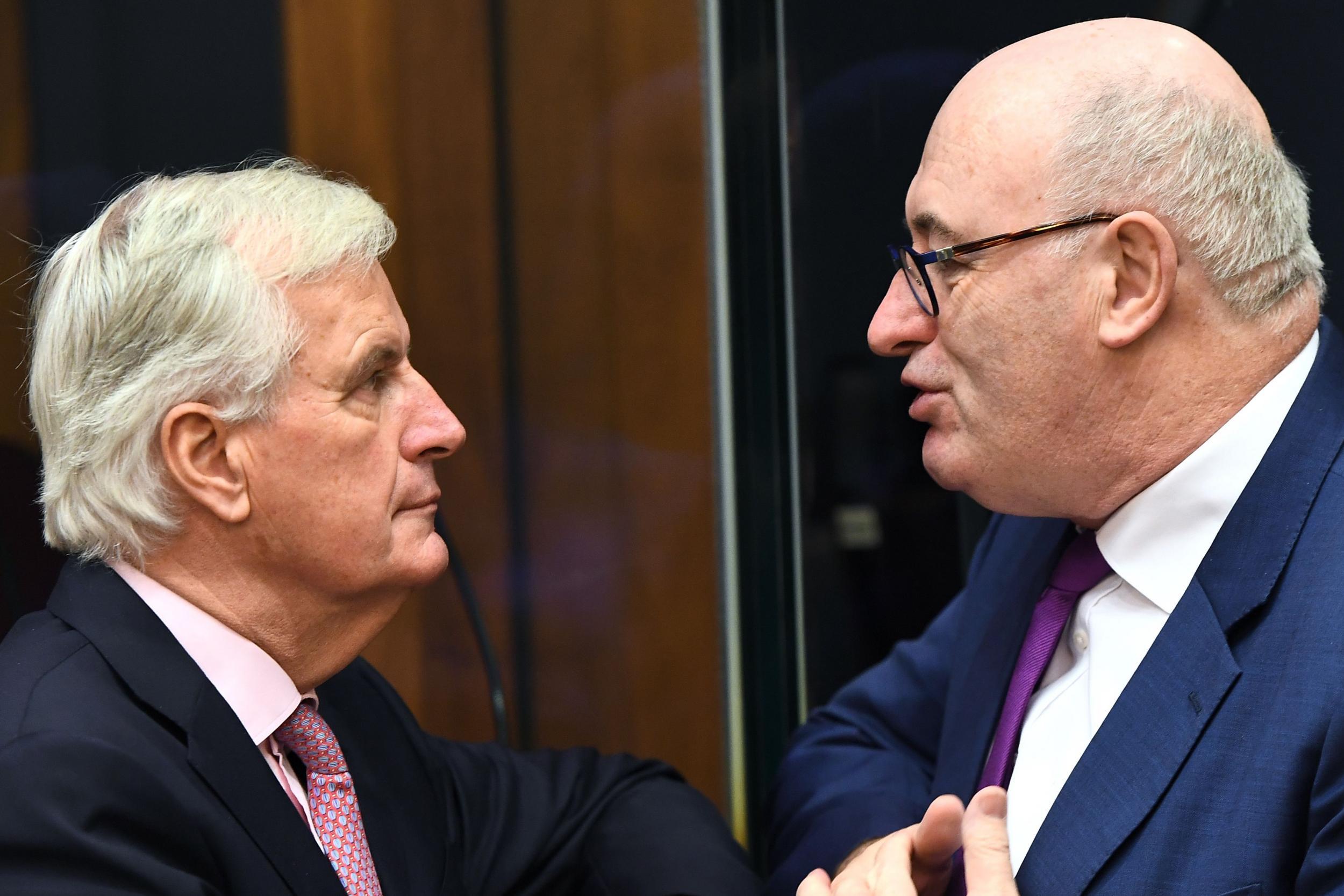Brexit: Ireland's EU commissioner rubbishes Theresa May's 'Global Britain' plan
Phil Hogan said the UK would become a 'medium-sized' nation with reduced bargaining power

Your support helps us to tell the story
From reproductive rights to climate change to Big Tech, The Independent is on the ground when the story is developing. Whether it's investigating the financials of Elon Musk's pro-Trump PAC or producing our latest documentary, 'The A Word', which shines a light on the American women fighting for reproductive rights, we know how important it is to parse out the facts from the messaging.
At such a critical moment in US history, we need reporters on the ground. Your donation allows us to keep sending journalists to speak to both sides of the story.
The Independent is trusted by Americans across the entire political spectrum. And unlike many other quality news outlets, we choose not to lock Americans out of our reporting and analysis with paywalls. We believe quality journalism should be available to everyone, paid for by those who can afford it.
Your support makes all the difference.Ireland’s EU Commissioner has rubbished Theresa May’s plan for a “global Britain” trading with the world after Brexit, warning that there are “stubborn facts that over-shadow a rosy picture” painted by the prime minister.
Speaking at Ireland’s headquarters in Brussels Phil Hogan said the UK would become a “medium-sized nation” after it left the EU with reduced bargaining power, and that the value of the Pound would become increasingly vulnerable to shocks.
Mr Hogan also warned that the Commonwealth was “not a cohesive bloc” to replace trade with the EU with and that rolling over existing trade agreements would “take years to negotiate”.
“[Theresa May] is confident that regaining its power to negotiate trade agreements will enable the UK to achieve greater well-being for its people through wider trade. One hopes she is right for the sake of UK citizens,” he said.
“Global Britain will mean for the United Kingdom a return to medium-sized nation status. Yes it will regain the sovereignty to seek and strike agreements where it wants but with reduced bargaining power, reduced security of its markets and supply chains, and a friction and cost added to each trade shipment to the EU, its biggest trade partner.
“Probably, in time if not immediately, there will be an increased sensitivity of the £ Sterling to Global Britain’s trading performance. The UK trade balance was a headline feature in the Sixties, often used to justify policy changes to reduce consumption. Will this be a feature of Global Britain?”
He added: “Stepping into Global Britain is stepping into a difficult world. And there will be a huge gap between hope and experience. As I say, one hopes that Prime Minister May’s confidence is not misplaced.”
The Commissioner said he was not arguing for the UK to “change its mind” and that its citizens had already decided to leave. But he said it was keeping count of the days until the British flag “will be hauled down from before the EU’s institutions”.
He further argued that the PM’s Mansion House speech on Brexit “lists those parts of EU membership that the UK would like to retain when it leave” and that “At another time, in another circumstance, Prime Minister May’s Mansion House speech would have been a strong argument for joining, not leaving, the EU.”
British and EU negotiators are currently locked into intensive talks about the Irish border question, which has proved the most intractable issue in the Article 50 separation talks.
The Independent understands that no formal progress has been made on changes to the text of the withdrawal agreement in talks since the European Council in March – though there has been an exchange of views on the subject. Meetings on the issue scheduled for today did not take place, sources suggested.
EU negotiators want progress on the Irish border by June in order to leave more time for negotiating the future relationship. Preliminary talks on the future relationship are starting this month despite a statement earlier this year by European Council talks that Ireland had to be settled first.
Other hurdles for the 'Global Britain' strategy have appeared in recent weeks: polling first reported by The Independent at the weekend showed the public are unwilling to compromise on food safety standards to get a trade deal with the US, while India's government said it was not in a rush to do a deal with Britain and Japan's said it would prioritise a free trade agreement with the EU instead.
Join our commenting forum
Join thought-provoking conversations, follow other Independent readers and see their replies
0Comments